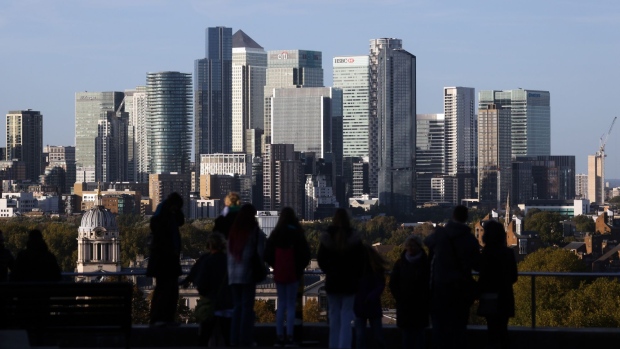Oct 27, 2021
U.K. Surcharge Cut Shields Banks From Corporation Tax Rise
, Bloomberg News

(Bloomberg) --
Chancellor of the Exchequer Rishi Sunak confirmed in Wednesday’s budget that a levy on U.K. bank profits would drop from 8% to 3% from 2023 to largely offset a 6 percentage point rise in corporation tax.
The expected reduction in the bank surcharge will cut the amount raised from the levy by 4 billion pounds ($5.5 billion) in the five years to March 2027, according to a government analysis. Sunak also raised the threshold at which banks are subject to the additional levy to 100 million pounds from 25 million pounds.
The move is a bid to keep the tax regime for lenders in line with other financial centers, the Treasury said. Taken together, the changes mean banks will still pay a higher overall corporation tax of 28%, compared to a current effective rate of 27%.
“Given the overall tax position of other global financial centers, we urge HM Treasury to keep the banking and finance sector’s total tax rate under active review,” lobby group UK Finance said in a statement.
The chancellor of the exchequer had signaled in March that the Treasury would review the tax “to ensure that the combined rate of tax on banks’ profits does not increase substantially from its current level.” If left unchanged, banks would have seen taxes on their earnings rise to 33% in 2023, as the U.K. government increases corporation taxes levied on businesses throughout the economy to help fund coronavirus support programs.
The surcharge was announced in 2015 by then-chancellor George Osborne, and it’s been in effect since January 2016. Osborne introduced the measure to ensure banks made a “fair contribution” to the exchequer as he gradually reduced a separate bank levy charged on balance sheet equity and liabilities of banks and building societies.
©2021 Bloomberg L.P.